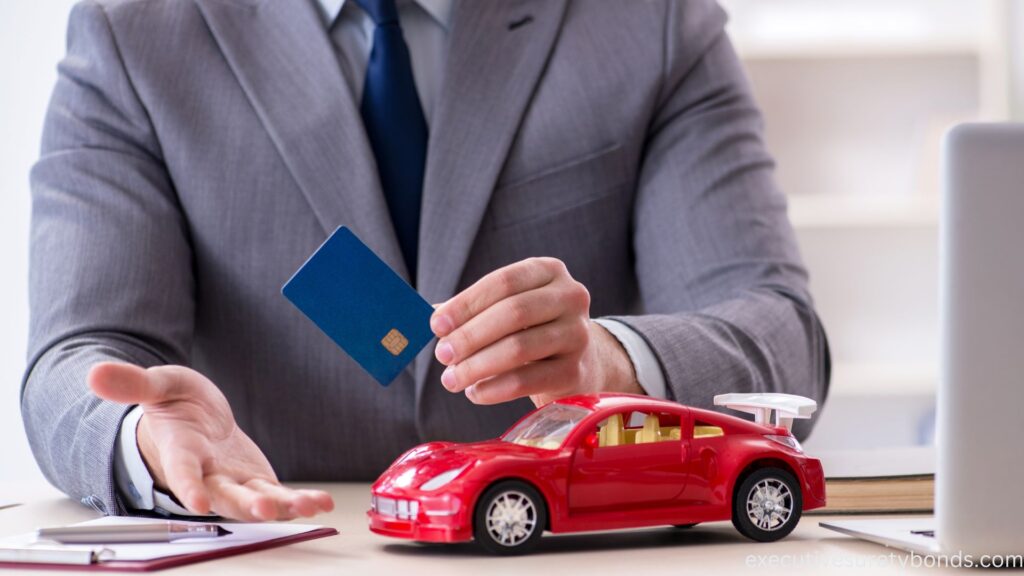Introduction
Louisiana is a state known for its vibrant culture, diverse landscapes, and bustling cities. And when it comes to automobiles, Louisianans are no strangers to the excitement of buying and selling cars. But did you know that behind every car dealership, there’s an important tool that ensures trust and responsibility? It’s called the Louisiana New Motor Vehicle Dealer Used Motor Vehicle Facility Bond. In this article, we’ll explore what this bond is, why it matters, and how it affects the world of car dealerships in a way that’s easy to understand, even for an 11th grader.
Demystifying the Louisiana New Motor Vehicle Dealer Used Motor Vehicle Facility Bond
Imagine you’re the proud owner of a brand-new car dealership in Louisiana. To start selling cars, you need various licenses and permits. But there’s more to it than just paperwork. The state wants to make sure you’re a responsible business owner who will treat customers fairly. That’s where the Louisiana New Motor Vehicle Dealer Used Motor Vehicle Facility Bond comes into play.
This bond is like a promise made between three parties:
- The Principal: That’s you – the car dealership owner who wants to sell new and used cars.
- The Obligee: This is the state government, which grants you the license to sell vehicles.
- The Surety: This is an insurance company that provides the bond.
The bond is a guarantee that you, the Principal, will follow all the rules and responsibilities that come with being a car dealer. If you don’t follow the rules, the Obligee can use the bond to cover any financial losses or damages that might occur.
The Significance of the Louisiana New Motor Vehicle Dealer Used Motor Vehicle Facility Bond
Now, let’s uncover why this bond is so important:
- Protecting Car Buyers: This bond ensures that when people buy cars from your dealership, they are treated fairly and that you’ll follow all the laws that protect consumers. It’s like a safety net for car buyers.
- Holding Dealerships Accountable: The bond also makes sure car dealerships are held accountable for their actions. If a dealership doesn’t follow the rules and harms a customer, the bond can step in to help the affected person.
- Building Trust: When you see that a car dealership has this bond, it’s a sign that they are committed to ethical practices and taking care of their customers. This builds trust between the dealership and the community.
Conclusion
In the dynamic world of car dealerships in Louisiana, the Louisiana New Motor Vehicle Dealer Used Motor Vehicle Facility Bond plays a vital role in ensuring fair and ethical business practices. This bond protects car buyers, holds dealerships accountable, and builds trust within the community. Whether you’re considering a career in the automotive industry or just curious about how car dealerships operate, understanding this bond sheds light on the mechanisms that keep the industry running smoothly. It’s a testament to how the state safeguards the interests of its citizens and maintains the integrity of its businesses.
Frequently Asked Questions
Can a dealership get a bond exemption in Louisiana?
Uncommon as it may be, in some cases, a dealership can seek an exemption from the bond requirement. The Louisiana Motor Vehicle Commission may grant an exemption if the dealership can provide compelling reasons and meets specific criteria. This can include proving financial stability or having an established track record of responsible business practices. However, exemption criteria and processes can be complex and typically require thorough documentation and approval by the Commission.
What happens if a dealership cannot obtain a bond?
While it’s uncommon for dealerships to be unable to obtain a bond, there are alternatives. In some cases, dealerships may be able to post a cash deposit or a letter of credit as an alternative to a traditional bond. This allows them to fulfill their financial responsibility without obtaining a bond from an insurance company. However, these alternatives may come with their own requirements and implications.
Can the bond amount change after it’s initially set?
The bond amount is typically determined based on the projected sales volume and financial stability of the dealership during the licensing process. However, it’s less common knowledge that the bond amount can be adjusted during the dealership’s operation. If a dealership experiences significant changes in its business operations, such as an increase in sales volume or expansion of facilities, the Louisiana Motor Vehicle Commission may review and adjust the bond amount to ensure it adequately covers potential liabilities.

